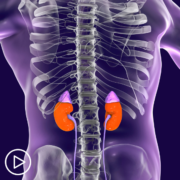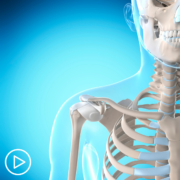Is There a Link Between Myeloma and Dental Health?
Is There a Link Between Myeloma and Dental Health? from Patient Empowerment Network on Vimeo.
Dr. Sikander Ailawadhi from Mayo Clinic explains that while multiple myeloma doesn’t commonly cause dental issues, there can be indirect connections via bone problems.
See More from START HERE Myeloma
Related Programs:

|

|

|
Transcript:
Lisa Hatfield:
Another question from a patient since my diagnosis and bone marrow transplant, my teeth have been deteriorating, is there a connection between dental health and myeloma?
Dr. Sikander Ailawadhi:
Very important question because although this is not a very common finding, it is something that really affects quality of life, so myeloma itself does not always or frequently caused teeth problems or dentition problems, which you can imagine teeth are bones. Myeloma affects bones, Myeloma affects calcium deposition in bone so teeth can get damaged in two or three different ways in myeloma patients, first, if myeloma involves the job or you can imagine that the teeth in that particular area could become loose or they could become a little off because the structure is getting affected.
Sometimes if my novels present on the job, for example, and radiation is given, but that bone becomes weaker, so teeth can become weaker, another way myeloma and dental health can be connected is because we use certain bone-strengthening agents for myeloma. These drugs are called either bisphosphonates, for example, or zoledronic acid (Zometa) or pamidronate acid (Aredia), patients may know as Zometa or Aredia, or there’s a second category called RANK ligand inhibitors, one of the drugs there is denosumab or Xgeva, these are all drugs that are given for bone-strengthening for myeloma. Patients are recommended to take calcium and vitamin D, but a rare but definitive side effect that is known to happen or can happen with these drugs is what’s called osteonecrosis of the jaw, where basically the jaw bone is becoming necrosed or less viable.
And you can imagine if the jaw is less viable, the teeth that go into the jaw in that spot, they’ll become loose and hurt, painful…it’s not a good condition to have it very…it affects quality of life significantly. So while it is rare, this osteonecrosis of the jaw can occur maybe less than 10 percent of the cases, but it is a significant morbidity causing issue.
What I recommend to patients is that one, if that is happening, first of all, we’re not…we typically don’t continue that drug that is causing it, like a bisphosphonate or RANK ligand inhibitor. Secondly, the patient needs to see a good oral maxillofacial surgeon or a good dentist, preferably someone who has knowledge and experience in handling outreaches of the job. So different ways in which melodic treatment can affect the job, there is not a direct correlation, but in about 10 to 15 percent of cases, there may be care or death-related implications and monuments either from the disease or its treatment like radiation or bone-strengthening drugs.



